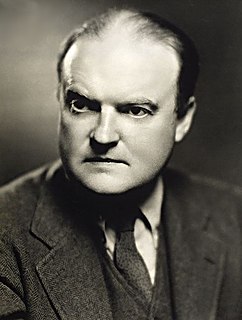A Quote by John Keats
We read fine things but never feel them to the full until we have gone the same steps as the author.
Related Quotes
When I read a novel that I really like, I feel as if I am in direct, personal communication with the author. I feel as if the author and I are on the same wavelength mentally, that we have a lot in common with each other, and that we could have an interesting conversation, or even a friendship, if the circumstances permitted it. When the novel comes to an end, I feel a certain letdown, a loss of contact. It is natural to want to recapture that feeling by reading other works by the same author, or by corresponding with him/her directly.
Sometimes when we read the words of those who have been more than conquerors, we feel almost despondent. I feel that I shall never be like that. But they won through step by step, by little bits of wills, little denials of self, little inward victories, by faithfulness in very little things. They became what they are. No one sees these little hidden steps. They only see the accomplishment, but even so, those small steps were taken. There is no sudden triumph, no spiritual maturity. That is the work of the moment.
The best advice I can give on this is, once it's done, to put it away until you can read it with new eyes. Finish the short story, print it out, then put it in a drawer and write other things. When you're ready, pick it up and read it, as if you've never read it before. If there are things you aren't satisfied with as a reader, go in and fix them as a writer: that's revision.
[D]on't ever apologize to an author for buying something in paperback, or taking it out from a library (that's what they're there for. Use your library). Don't apologize to this author for buying books second hand, or getting them from bookcrossing or borrowing a friend's copy. What's important to me is that people read the books and enjoy them, and that, at some point in there, the book was bought by someone. And that people who like things, tell other people. The most important thing is that people read.






































